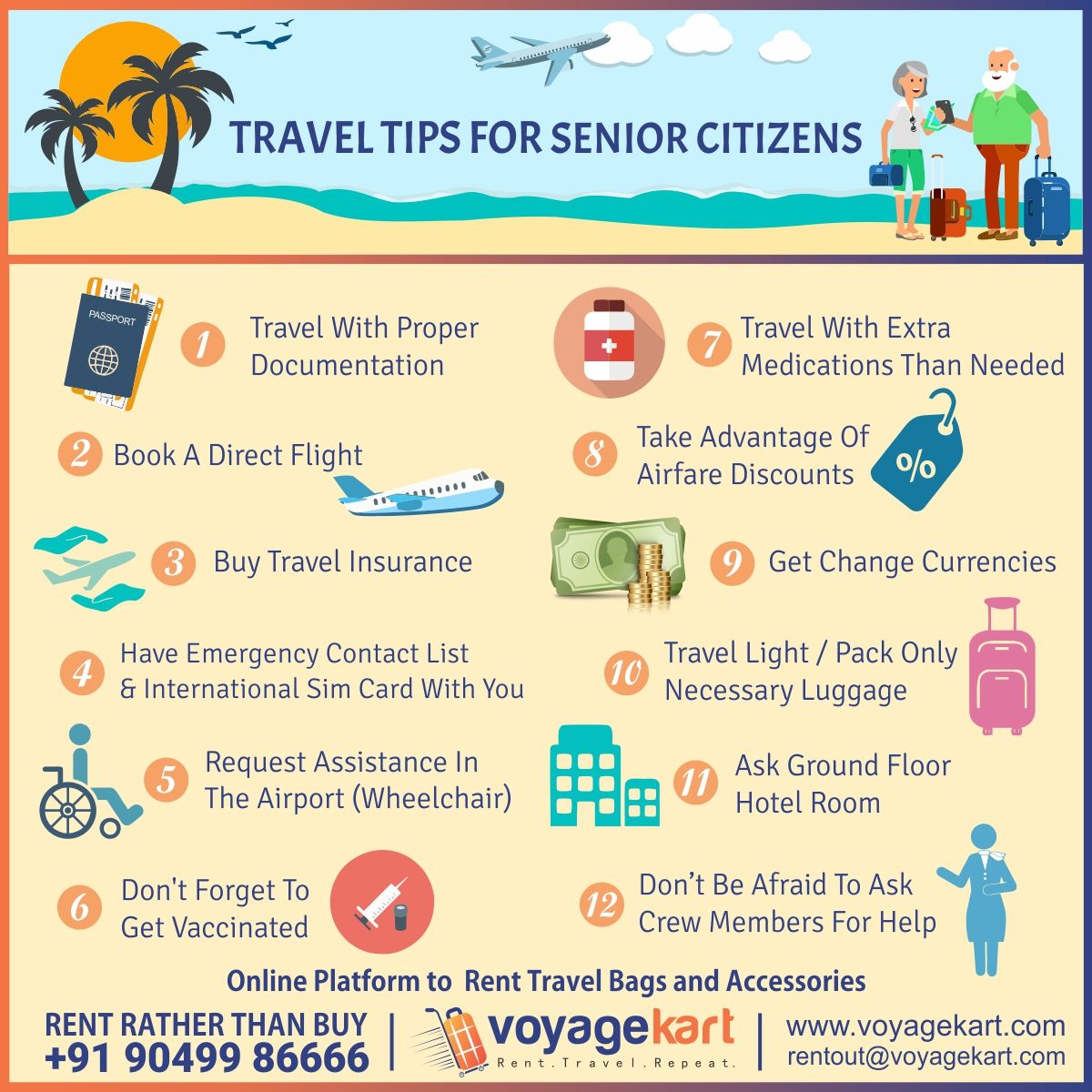Senior Travel Service: The silver-haired generation’s desire for exploration and adventure is on the rise, creating a booming market brimming with opportunities. This guide delves into the dynamic world of senior travel, examining market trends, service types, effective marketing strategies, and the crucial aspects of providing exceptional customer experiences tailored to the unique needs of older travelers. We will explore the technological advancements shaping this sector and address the legal considerations involved in offering these specialized services.
From escorted tours and cruises to independent travel packages and specialized services catering to specific health needs, we’ll examine the diverse range of options available. Understanding the nuances of this market, from marketing effectively to addressing potential challenges and exceeding customer expectations, is vital for success in this rewarding yet demanding field. We’ll also look at the evolving role of technology in enhancing safety, convenience, and overall travel satisfaction for senior clients.
Market Overview of Senior Travel Services
The senior travel market is experiencing significant growth, driven by increasing longevity, improved health among older adults, and a greater desire for fulfilling travel experiences in retirement. This burgeoning sector presents substantial opportunities for businesses offering tailored services and products catering to the unique needs and preferences of this demographic.
The senior travel market is characterized by a diverse range of travelers with varying budgets, travel styles, and health considerations. Understanding these nuances is crucial for effective marketing and service delivery.
Market Size and Growth Potential
The global senior travel market is substantial and projected to expand considerably in the coming years. While precise figures vary depending on the source and definition of “senior traveler,” reports consistently indicate a multi-billion dollar market with a compound annual growth rate (CAGR) exceeding the overall tourism sector. For example, a recent study by [Source Name – replace with actual source] estimated the market size at [Insert estimated market size – replace with actual data] in [Year] and projected it to reach [Insert projected market size – replace with actual data] by [Year]. This growth is fueled by factors such as the increasing number of individuals reaching retirement age and a rise in disposable income among older adults in many developed and developing countries.
Key Demographics
The senior travel market encompasses a wide range of demographics. Key segments include: the “active agers” (typically 65-75 years old) who are physically fit and seek adventurous trips; the “leisure travelers” (75-85 years old) who prefer more relaxed and comfortable journeys; and the “assisted travelers” (85+ years old) who require specialized assistance due to mobility or health challenges. Geographic location also plays a role, with different regions exhibiting varying preferences and travel patterns. For example, North American seniors may favor cruises and all-inclusive resorts, while European seniors might prefer independent exploration of historical sites and cultural experiences.
Prevalent Trends
Several key trends are shaping the senior travel industry. One prominent trend is the rise of “experiential travel,” with seniors prioritizing enriching and culturally immersive experiences over simply visiting tourist hotspots. Another significant trend is the growing demand for accessible and inclusive travel options, catering to the needs of seniors with disabilities or mobility limitations. Furthermore, the increasing adoption of technology, particularly online booking platforms and travel apps, is transforming how seniors plan and book their trips. The emphasis on wellness and health-focused travel is also becoming increasingly popular, with seniors seeking opportunities for relaxation, rejuvenation, and physical activity during their travels.
Comparison of Senior Travel Service Providers
The senior travel market comprises diverse service providers, ranging from large tour operators offering mass-market packages to smaller, niche companies specializing in customized itineraries. Large operators often provide standardized packages at competitive prices, but may lack the personalization and flexibility offered by smaller providers. Smaller companies can tailor trips to specific interests and needs, offering greater control and customization, but often at a higher cost. Examples of different service providers include companies focusing on adventure travel for active seniors, those specializing in river cruises for a more relaxed pace, and those offering escorted tours with comprehensive support for those requiring assistance. The choice depends heavily on individual preferences, budget, and health considerations.
Types of Senior Travel Services Offered
The senior travel market offers a diverse range of services designed to cater to the specific needs and preferences of older travelers. These services vary greatly in terms of structure, level of support provided, and the overall travel experience. Understanding these differences is crucial for selecting the best option for an individual’s travel style and capabilities.
Several key categories encompass the spectrum of senior travel services, each offering unique benefits and considerations. These options allow for a personalized approach to travel planning, ensuring a comfortable and enjoyable experience for every senior traveler.
Escorted Tours
Escorted tours provide a structured and comprehensive travel experience, ideal for seniors who prefer a hassle-free journey with built-in support. These tours typically include pre-arranged transportation, accommodation, guided sightseeing, and often meals. The presence of a tour director or guide ensures smooth transitions and provides valuable insights into the destinations visited. This removes the stress of planning logistics and allows seniors to fully immerse themselves in the cultural and historical aspects of their trip. Popular destinations for escorted tours often include European capitals, national parks, and cruises to various regions.
Cruises
Cruises offer a unique blend of relaxation and exploration. Many cruise lines cater specifically to senior travelers, offering amenities like accessible cabins, specialized dining options, and onboard activities designed for older adults. The all-inclusive nature of cruises simplifies budgeting and eliminates the need to constantly plan meals and transportation. Furthermore, the onboard amenities provide ample opportunities for socialization and relaxation. Popular cruise destinations range from the Caribbean and the Mediterranean to Alaska and the transatlantic voyages.
Independent Travel Packages
For seniors who value independence and flexibility, independent travel packages provide a tailored approach. These packages typically include pre-booked flights and accommodations, but allow for greater freedom in itinerary planning and daily activities. While offering more autonomy, these packages often still include helpful resources like 24/7 support lines and travel insurance. This option is particularly appealing to experienced travelers who prefer to explore destinations at their own pace. Destinations are entirely customizable based on individual preferences and interests.
Specialized Senior Travel Services
Beyond the main categories, several specialized services cater to specific needs and preferences of senior travelers. Accessible travel options, for example, ensure that individuals with mobility limitations can enjoy travel experiences. This includes features like wheelchair-accessible transportation, adapted accommodations, and assistance with navigating airports and other travel hubs. Similarly, some services offer medical assistance and travel insurance specifically tailored to the health concerns of older adults. This might involve coordinating medical appointments during travel or providing access to medical professionals while abroad.
| Service Type | Cost Range | Accessibility Features | Popular Destinations |
|---|---|---|---|
| Escorted Tours | $3,000 – $15,000+ per person | Varies greatly depending on the tour operator and specific tour; may include accessible transportation and accommodations | Europe, National Parks (USA), Asia |
| Cruises | $1,000 – $10,000+ per person | Many cruise lines offer accessible cabins and amenities; some specialize in senior travel | Caribbean, Mediterranean, Alaska, Transatlantic |
| Independent Travel Packages | Variable, depending on flight and accommodation choices | Accessibility features depend on chosen accommodations and transportation; some agencies specialize in accessible travel | Worldwide, customizable based on individual preferences |
| Specialized Services (Accessible/Medical) | Variable, often higher than standard packages due to specialized support | Comprehensive accessibility features, medical assistance, and specialized insurance | Worldwide, often tailored to specific needs and accessibility requirements |
Marketing and Sales Strategies for Senior Travel Services
Marketing senior travel services requires a nuanced approach, understanding the unique needs and preferences of this demographic. Success hinges on building trust, leveraging appropriate channels, and crafting compelling messaging that resonates with their values and priorities. This involves more than just advertising; it’s about establishing a relationship built on reliability and understanding.
Marketing Campaign Design for Senior Travelers
A successful marketing campaign for senior travelers prioritizes clear, concise messaging, emphasizing safety, comfort, and value. The campaign should highlight the benefits of travel, addressing potential concerns seniors might have, such as accessibility, health considerations, and ease of booking. For example, a campaign could focus on “Stress-Free Senior Travel,” showcasing itineraries with minimal physical exertion, readily available assistance, and clear communication throughout the journey. Visuals should depict active, engaged seniors enjoying their travel experiences, avoiding stereotypes and promoting a positive image of aging. The campaign should be multi-faceted, utilizing various channels to reach the target audience effectively.
Reaching Senior Travelers Through Different Channels
Reaching senior travelers requires a multi-channel strategy. Print media, particularly publications targeting seniors or those with specific interests (like gardening or history), remain relevant. Articles showcasing successful senior travel experiences or highlighting the benefits of specific destinations can be effective. Online advertising, focusing on search engine optimization (SEO) for relevant keywords (e.g., “accessible senior tours,” “easy senior travel packages”), and targeted advertising on platforms frequented by seniors (such as AARP’s website or specific interest groups on Facebook) are crucial. Social media marketing requires a careful approach, focusing on platforms like Facebook, where many seniors are active. Content should be easily digestible, visually appealing, and avoid overly technical jargon. Email marketing, with personalized messages and regular updates, can also nurture leads and maintain engagement.
Building Trust and Credibility with Senior Clients
Trust is paramount when marketing to senior travelers. Testimonials from satisfied clients, prominently displayed on the website and marketing materials, can significantly boost credibility. Featuring detailed itineraries, clear pricing structures, and readily available customer service information build confidence. Partnerships with reputable organizations, such as AARP or senior-focused travel insurance providers, further enhance trust. Transparency in all aspects of the service, from booking to travel arrangements, is crucial. Addressing potential concerns proactively, such as travel insurance options or accessibility accommodations, demonstrates a commitment to the client’s well-being.
Converting Leads into Bookings: A Step-by-Step Guide
Converting leads into bookings involves a structured approach. First, a well-designed website with easy navigation and clear call-to-actions is essential. Second, prompt and personalized responses to inquiries are crucial. Third, providing detailed information about tours, including pricing, itineraries, and inclusions, empowers potential clients to make informed decisions. Fourth, offering various payment options and flexible booking policies caters to different preferences. Fifth, a dedicated customer service team, readily available to answer questions and address concerns, builds confidence and facilitates the booking process. Finally, following up after booking with personalized communication, confirming arrangements and providing helpful travel tips, strengthens the client relationship and fosters loyalty.
Customer Experience and Service Excellence
Providing exceptional customer service is paramount for success in the senior travel market. Senior travelers often have specific needs and preferences that require a highly personalized and attentive approach. Understanding these needs and proactively addressing potential challenges are crucial for building trust and loyalty.
A positive customer experience for senior travelers hinges on several key elements, including clear and empathetic communication, personalized service tailored to individual needs and abilities, and a commitment to safety and security throughout the travel journey. Addressing potential challenges proactively, such as managing physical limitations or addressing anxieties about unfamiliar environments, is vital in creating a seamless and enjoyable travel experience.
Key Elements of a Positive Customer Experience
Several factors contribute to a positive customer experience. These include accessible and easy-to-understand communication, both in written materials and verbal interactions. Personalized service that takes into account individual needs and preferences, such as dietary restrictions or mobility issues, is crucial. Furthermore, providing a sense of security and safety throughout the travel experience, from airport transfers to on-site assistance, is paramount.
Challenges in Providing Exceptional Service to Senior Clients
Serving senior travelers presents unique challenges. These include managing the diverse range of physical abilities and health conditions among clients, addressing potential anxieties related to travel, and ensuring effective communication with individuals who may have different levels of technological proficiency. Adapting services to meet individual needs, while maintaining efficiency and cost-effectiveness, requires careful planning and a flexible approach.
Best Practices in Customer Service for Senior Travelers
Best practices include providing pre-trip consultations to assess individual needs and preferences, offering accessible and user-friendly booking systems, and providing clear and concise travel documentation. On-site support and assistance, such as readily available staff members or dedicated concierge services, can significantly enhance the travel experience. Regular check-ins and proactive communication throughout the journey can also help address any concerns or issues that may arise.
- Offer large-print brochures and easily navigable websites.
- Provide dedicated phone lines and email addresses for assistance.
- Employ staff trained in geriatric care and sensitivity.
- Partner with local providers who offer accessible transportation and accommodations.
Handling Customer Complaints and Resolving Issues Effectively
Effective complaint handling is essential for maintaining customer satisfaction. This involves actively listening to customer concerns, showing empathy and understanding, and taking prompt action to resolve issues. A well-defined process for handling complaints, including clear communication channels and timely responses, can significantly improve customer satisfaction and loyalty. For example, if a client experiences a problem with their accommodation, immediately offer alternative arrangements and provide compensation for the inconvenience.
Technological Advancements in Senior Travel
Technology is rapidly transforming the senior travel experience, making it easier, safer, and more enjoyable for older adults. From booking trips online to using mobile apps for navigation and communication, technological advancements are addressing the unique needs and challenges of this demographic, fostering greater independence and peace of mind.
Mobile Apps and Online Booking Platforms
The rise of mobile apps and user-friendly online booking platforms has significantly simplified the travel planning process for seniors. These platforms offer a range of features designed to cater to the specific needs of older travelers, including large, easily readable fonts, intuitive interfaces, and accessible booking options. Many platforms allow for filtering based on accessibility needs, such as wheelchair accessibility or the availability of grab bars in hotel bathrooms. Furthermore, online platforms often provide detailed information about destinations, including accessibility features of attractions and transportation options, enabling seniors to make informed choices. Examples include specialized travel websites catering to seniors that offer curated itineraries and accessible accommodation options. These platforms also frequently integrate features like real-time flight and hotel updates, simplifying the management of travel plans.
Technology Enhancing Safety and Security
Technology plays a crucial role in enhancing the safety and security of senior travelers. GPS tracking devices, for instance, provide peace of mind for both travelers and their families, allowing for real-time location monitoring. Many smartphones now include emergency SOS features that can quickly alert emergency services in case of an accident or medical emergency. Furthermore, secure online payment systems reduce the risk of fraud and theft, ensuring safe financial transactions throughout the travel process. Some companies offer wearable technology with fall detection and emergency call features specifically designed for older adults traveling independently. This technology can automatically alert emergency contacts and dispatch help if a fall occurs.
Emerging Technologies in Senior Travel
Several emerging technologies hold immense potential for improving senior travel experiences. Artificial intelligence (AI) can be leveraged to provide personalized travel recommendations based on individual preferences, health conditions, and mobility limitations. Virtual reality (VR) and augmented reality (AR) technologies offer immersive previews of destinations, allowing seniors to virtually explore potential travel locations before booking. This allows them to assess the suitability of destinations for their physical abilities and preferences. For example, a senior could virtually “visit” a museum to determine if the layout is suitable for their mobility needs before committing to the trip. Additionally, the increasing integration of smart home technologies with travel services allows for remote control of home appliances, offering seniors greater peace of mind while traveling.
End of Discussion
Successfully navigating the senior travel market requires a keen understanding of the unique needs and desires of this demographic. By implementing effective marketing strategies, prioritizing exceptional customer service, leveraging technological advancements, and adhering to legal and regulatory guidelines, businesses can thrive in this rapidly growing sector. Ultimately, the goal is to provide enriching and memorable travel experiences that empower seniors to explore the world while feeling safe, comfortable, and well-cared for. The rewards extend beyond financial success; they encompass contributing to the well-being and happiness of a deserving population.




